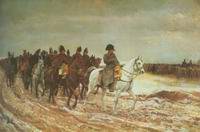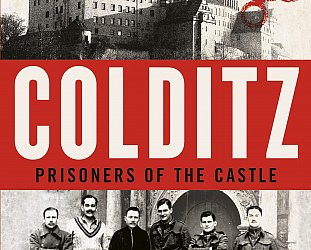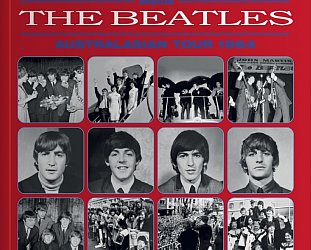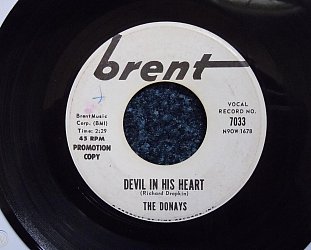Graham Reid | | 1 min read

Few people -- even American Republicans these days -- still believe the invasions of Afghanistan and Iraq had much to do with containing terrorism, and various truths about the impetus for these events contend for attention.
Doubtless, as with most enormous affairs in world history, time and access to more information from all sides will make things more clear.
So don’t expect answers soon.
It has taken almost two centuries to begin to understand the contending ideas that historians say took Napoleon towards Moscow, and his humiliating retreat.
In this account by the British-based Zamoyski -- who has previously written on Polish history -- myths are dispensed with quickly.
For many, Russians in particular, this epic event has been as simple as the cunning Czar Alexander luring the Napoleonic troops onwards and, through a scorched earth policy, having them stranded far from supply lines while winter took its toll.
There are stories of romantic heroism, and the war provided artists from Tolstoy to Tchaikovsky with inspiration.
Of course much of the story is more prosaic than that, as Zamoyski reveals in this scholarly but thoroughly readable 600 page paperback.
In a similar style to that of historian Anthony Beevor (who has written of the siege of Stalingrad and the fall of Berlin) once his story takes wings -- after the necessary pinning down the political climate in Europe -- Zamoyski uses a cinematic approach: he zooms in on the horrors on the frontlines then pulls back to strategists and (often incompetent) commanders well away from the grapeshot and carnage.
Far from being a heroic figure Alexander (described as vain, weak and lazy) comes off, in his early years, as being easily duped by Napoleon’s political wiles. The backdrop of post-revolutionary France isolating British trade and becoming increasingly expansionist as Napoleon played political chess with countries and territories are also significant factors. Russia posed a threat to France in that it could provide succour and support to the wishes of nationalists under Napoleonic rule, and from the Russian perspective France was doing much the same for Poles struggling to be free of Russian domination.
Into this mix of high politics comes human foibles (constant bickering and jockeying within the Russian command), simple but ultimately devastating matters like a poor choice of weaponry and uniforms for Napoleon’s army, and a lack of pragmatism by Napoleon’s field commanders who marched forward as the Russians retreated -- more out of fear of engagement and defeat than as a coherent tactic according to Zamoyski -- and into the inevitable winter.
In writing of this epic event, Zamoyski has the advantage of being able to speak many of the languages used by the various protagonists, and so has access to persuasive source material. He also humanises history, puts personalities to faces and names, and doesn’t shy from recounting the almost incomprehensible awfulness of the French retreat.
A book where history is the vehicle to understand, or shake your head at, human behaviour which had appalling and generational consequences.






post a comment